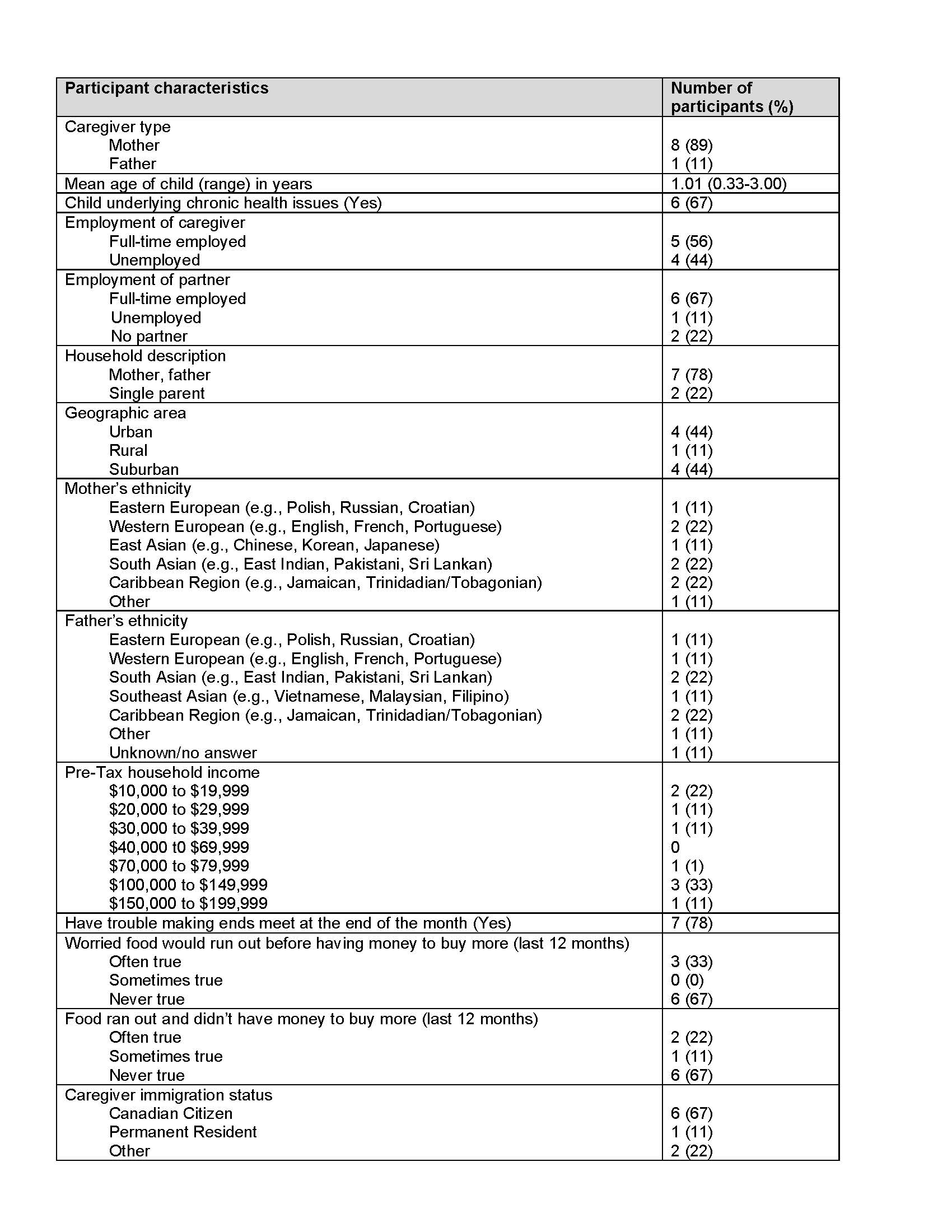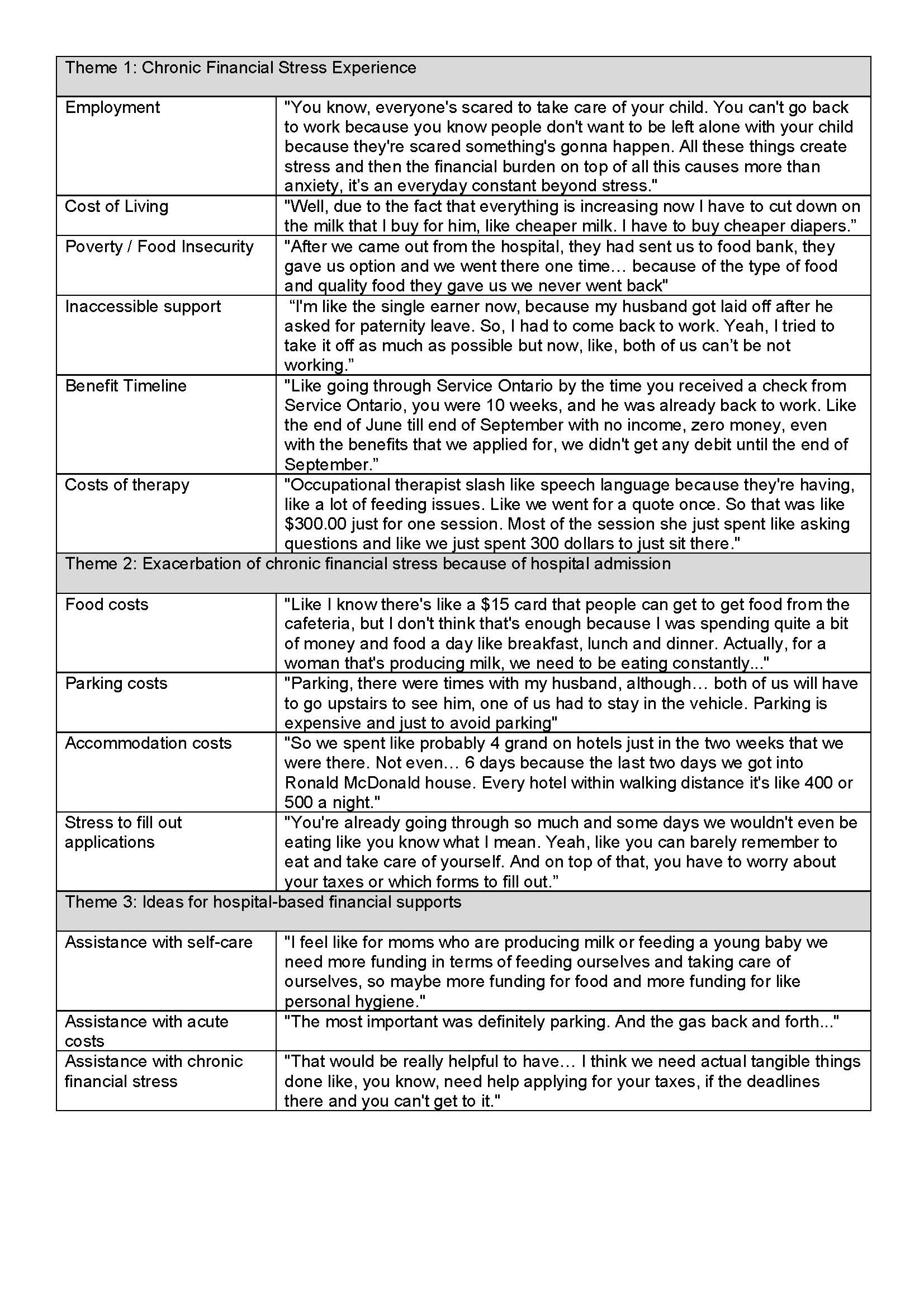Neonatology
Session: Neonatal Follow-up 1
489 - Experiences of Financial Stress and Supports in Caregivers in Neonatal Neurodevelopmental Follow-up Program
Saturday, May 4, 2024
3:30 PM - 6:00 PM ET
Poster Number: 489
Publication Number: 489.1543
Publication Number: 489.1543
.jpg)
Serena Perera, B. Sc (she/her/hers)
Medical Student
University of Toronto Temerty Faculty of Medicine
Richmond Hill, Ontario, Canada
Presenting Author(s)
Background: Parents with a child admitted to the Neonatal Intensive Care Unit may experience significant financial burdens related to hospital admission and after discharge. Interventions to address finanical stress in caregivers in neonatal neurodevelopmental follow-up programs (NNFUs) have been scarce. Medical-financial partnerships (MFPs), collaborations between medical and financial service organizations, have emerged to help families address financial stress.
Objective: To identify sources of financial stress in families with children followed at a NNFU and their attitudes and suggestions towards receiving financial services.
Design/Methods: In this qualitative study, caregivers of children being followed in the NNFU at The Hospital for Sick Children,Toronto were purposefully sampled with a short survey. Survey questions inquired about sociodemographics, household income, difficulties making ends meet and food insecurity. Caregivers with diverse socioeconomic backgrounds were invited to participate in a 30-minute semi-structured interview. An interview guide was developed based on literature and clinical experiences in collaboration with the MFP Working Group. Questions included experiences of financial stress and needs and suggestions for financial services. Interviews were recorded and transcribed verbatim. A modified-grounded theory approach was used to identify pertinent themes using NVIVO software.
Results: Twenty-five surveys were distributed; 9 caregivers participated in an interview. Seven caregivers indicated having difficulties making ends meet (Table 1). Three themes and associated subthemes (in parentheses) were identified (Table 2). The experience of chronic financial stress (difficulties with employment, high cost of living, poverty, food insecurity, inaccessible supports, benefit time lines, costs of therapy) was identified as a major theme. Chronic financial stress was exacerbated by hospital admission related costs (food, parking and accommodation) and additional stress to fill out applications for benefits while having a sick child. Caregivers generally supported the idea of hospital-based financial services and provided suggestions for assistance with acute costs and chronic financial stress. Caregivers emphasized the importance for financial assistance with self-care - especially for lactating mothers - to be able to provide optimal care for their child.
Conclusion(s): Caregivers with a child followed in the NNFU expressed chronic financial stress and exacerbation of this stress during hospital admission. Results of this study will be used to design a MFP in the NNFU.


